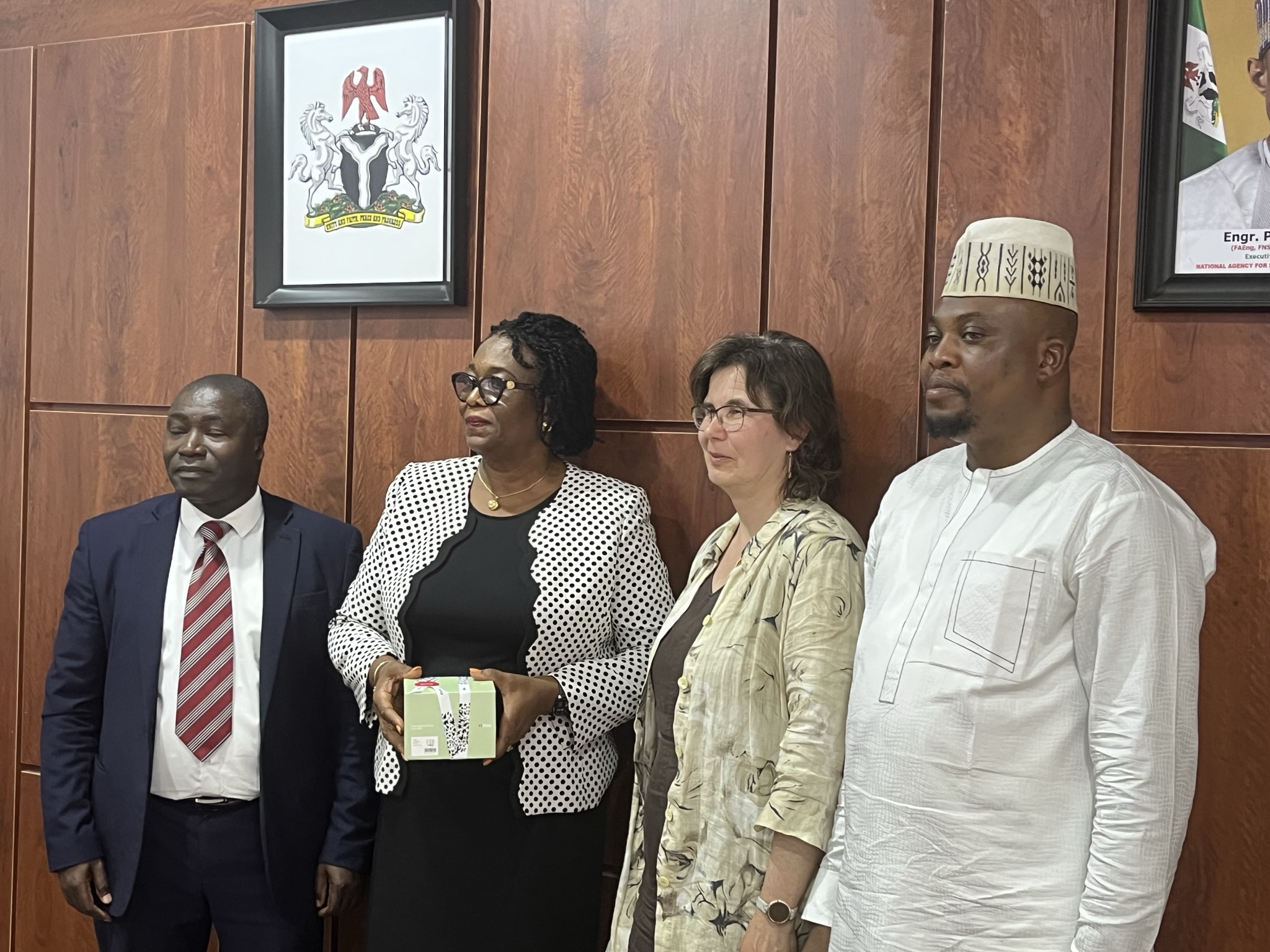Our Laurea UAS delegation (Harriet Lonka, Conrad Lyaruu, Harri Ruoslahti) visited on an Erasmus seed grant Abuja, the capital of Nigeria. This visit was carried out on last week of April 2023, and we just made it back to celebrate Vappu. During our journey we visited the University of Abuja (UNIABUJA), National Agency for Science and Engineering Infrastructure (NASENI), the Nigeria Institute of Medical Research (NIMR), the Embassy of Finland, and the offices of the Delegation of the European Union for Nigeria and ECOWAS.
 Visiting National Agency of Science and Engineering infrastructure – NASENI (photo by Harri Ruoslahti)
Visiting National Agency of Science and Engineering infrastructure – NASENI (photo by Harri Ruoslahti)
The many discussions of the week covered a wide range of possible common interests in higher education and research, development, and innovation (RDI). Our partner, University of Abuja, is a multidiscipline university. University was founded 1988 which is the same year of founding city of Abuja. Our discussions tackled the effects of climate change, the applications of WHO One Health concept, and how environmental risks and food safety lead to better health.
One Health is a holistic approach combining prevention of zoonotic diseases, improving human, animal and environmental health as well as food safety in the entire food production chain. This approach was seen to provide a solid basis for building both joint education and development programs that also connect with issues of digital eHealth. The application of triple-helix model which combines the interests of governmental, academic, and private sectors can provide meaningful basis for collaboration with large range of partners and to make an impact wider in society.
Both the University and NIMR representatives expressed their interest to know the state of sanitation, and the practical food safety e.g. the types of sold and eaten food and types of food management in the case community. Poor sanitation and contaminated food spreads salmonella and typhoid, which after malaria are the most problematic diseases in the country. The University of Abuja microbiology department has collected and analyzed samples of local foods. These prior studies and student projects have collected rich sets of data for further research.
To really make an impact, it was noted that besides our two universities working together, citizen participation is very important to make this collaboration resourceful. Also important is to partner with the Federal Ministry of Agriculture that is in charge of agriculture and food production. It is commonly known fact that 80% of diseases are concentrated in rural areas, because of the very close proximity between people and animals. Outbreaks can spread very quickly from farm to farm. Specific challenges within the rural environment are high levels of pesticides and micro-toxins, which affect the food chains of both people and animals. This is why the veterinary administration will also be needed to be involved.
A proposal was made that Laurea and University of Abuja select one local case area to identify the critical issues in that area. Based on this we can create comparative studies in other areas to understand how the identified elements can be shared. This information can help engage policymakers, and to build awareness. Also, engaging the industry and other companies in the spirit of Learning by Developing (LdD) will take the work forward to improve food safety.
The Gwagwalada community, in close proximity to University’s location, was identified as one potential case for both study and development. This could provide for students the opportunities to perform LbD-based studies that aim at the development of food safety within this community. It was noted that partnership can provide many further opportunities in concept modelling and design. The partnership with the university hospital which is situated in the Gwagwalada area was also thought to be important. That hospital is a place where many affected people will be treated and therefore designing a system that hospital services regarding the core topic will reach the inhabitant is necessary.
Laurea will try to negotiate that the Erasmus grant could fund e.g., ten students to Finland for a mini seminar to share their findings, and to workshop for ways to take their work forward. The next steps will be driven by our international office to devise a project-based study unit that could include student work on the ground in the chosen Nigerian community and an interactive workshop on what and how to drive local food safety toward a national level. This visit to Finland could also include fact finding visits to hospitals, healthcare facilities, and farms. This visit is planned for the spring of 2024.
Besides the environmental risks and health, possible interesting areas to broaden this Nigeria – Finland university collaboration can be expanded to climate change, circular economy, and hospitality and tourism, even a Nordic – African winter school.